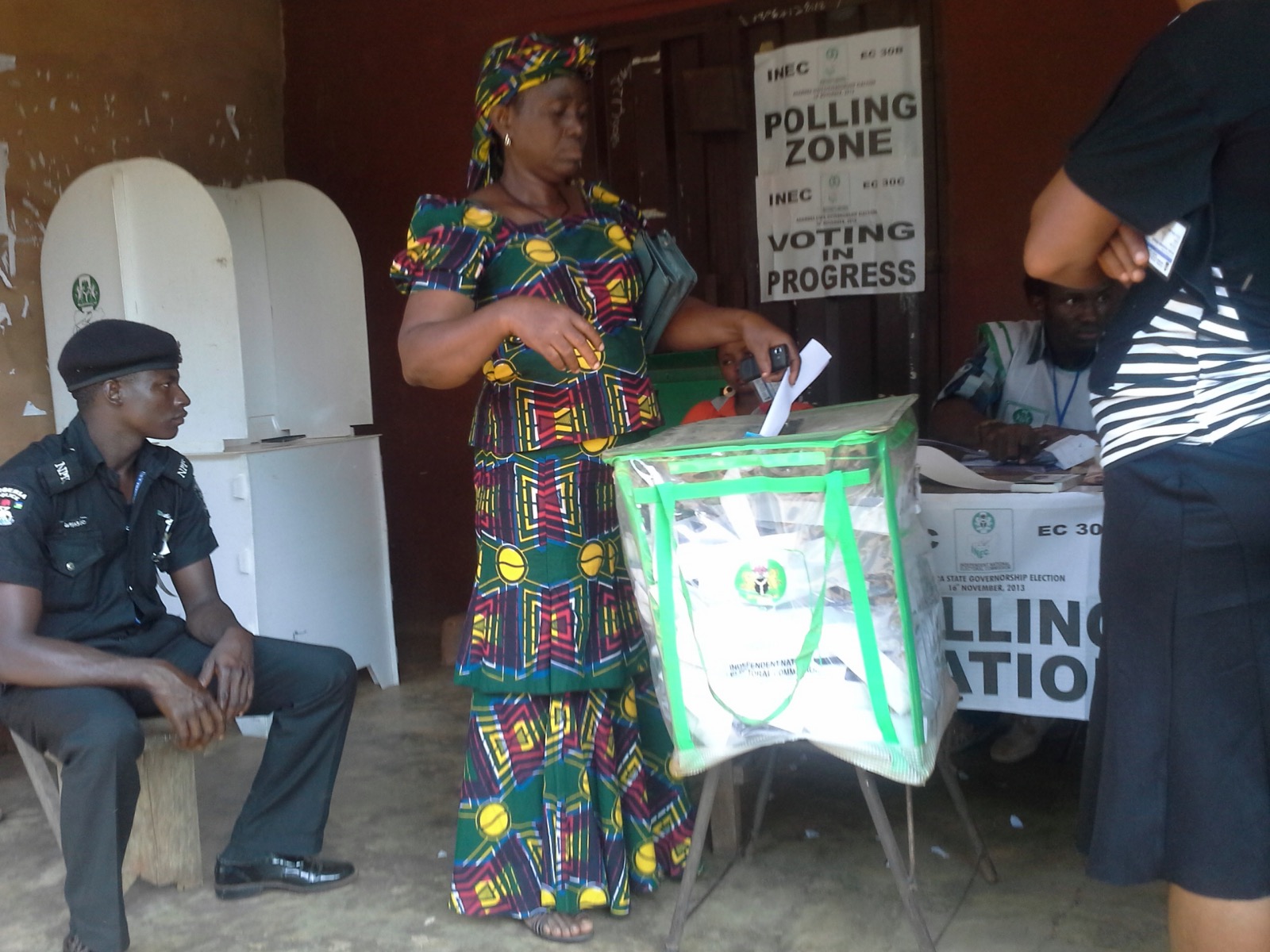by Ibrahim Faruk
In 2015, Nigeria witnessed a successful democratic transition from the People’s Democratic Party (PDP) to the All Progressives Congress (APC) in what was arguably the most competitive poll since the country’s transition to democratic rule in 1999. Democratic transitions in Nigeria’s electoral history since independence, however, have never been without violence.
Given the level of post-election violence in 2011, which claimed the lives of more than 800 people and resulted in the displacement of approximately 65,000 people according to YIAGA’s Observations Report on Youth Participation in Nigeria’s 2015 General Elections, 28 March and 11 April 2015, hence the need for ensuring a peaceful democratic transition significantly increased in the 2015 elections in order to pave way for democratic consolidation and sustainable development.
Elections are significant features of a democratic society, because they serve to legitimize political systems, ensure the accountability of leaders, and reinforce citizen’s participation in the political process. Legitimacy, accountability and citizen participation are crucial, not just for political stability; they also are at the centre of the very significant issue of representation.
The fabric of democratic societies are threatened when political parties and politicians, either acting individually or through their proxies engage in any random or organized act that seeks to determine, delay or otherwise influence an electoral process through threat, verbal intimidation, hate speech, disinformation, physical assault, forced ‘protection’, blackmail, destruction of property or assassination.
Electoral violence has a critical impact on the electoral process, the outcome of the elections, and their perceived legitimacy. It negatively affects a society’s prospect for democratic consolidation and sustainable development.
The gubernatorial and state house of assembly elections in Rivers state on April 11, 2015 prompted YIAGA to recommend in her Interim Report on Observation of the Gubernatorial and State Assembly Elections Holding On Saturday 11 April 2015 that the security reports from Rivers state have been worrisome. The report stated that, if the situation continues to escalate it would undermine the free expression of the will of the people through the ballot. In that case, we would strongly urge INEC to consider canceling and rescheduling the elections in Rivers State.
It is unfortunate that the violence which characterized the gubernatorial and state House of Assembly elections in Rivers state on April 11, 2015 reared its ugly head again in the 19 March, 2016 re-run elections conducted by the Independent National Electoral Commission (INEC) into various seats in both the National and the Rivers State House of Assembly pursuant to the Orders of the Court of Appeal.
It is even more unfortunate that the violence that marred and disrupted the elections claimed the life of Okonta Samuel, an NYSC member with state code number RV/15B/5539 who was shot dead by unknown gunmen in Ahoada West local government area.
Similarly, 9 NYSC members lost their lives in 2011, following the announcement of the presidential election results in Bauchi state, Nigeria. Members of the National Youth Service Corps (NYSC) were recruited by INEC to serve as ad-hoc election staff in communities where they were deployed. The logic behind deployment of NYSC members as election officials is that since most of the NYSC members are non-natives, they are more likely to be non-partisan. This call to duty by the NYSC members eventually meant they paid the price of the service to their fatherland with their lives.
The deadly cycle of electoral violence in Nigeria and particularly in Rivers state continues to undermine the free expression of the will of the people through the ballot, delegitimize political systems, weaken accountability mechanisms, and frustrate citizen’s participation in the political process.
YIAGA’s Report, Election for Thugs, from her Youth Observatory and Social Media Analysis Center for the 2015 General Elections states that security officials must recognize that their primary responsibility at the polling unit is to maintain peace and protect the lives of voters and Election Day workers. The presence of security officials in the polling units ought to reinforce voters’ a sense of security as they exercise their franchise.
As the end of one electoral cycle announces the beginning of another, there is no better time than now to strengthen and reform the electoral processes to safeguard citizens and ad-hoc election staff (especially NYSC members), develop security forecast and response strategy at local and national levels as a basis for dealing with any outbreak of electoral violence.
Additional contributions from Agenyi Arome. This is a report published by YIAGA, a youth development advocacy group in Nigeria.







